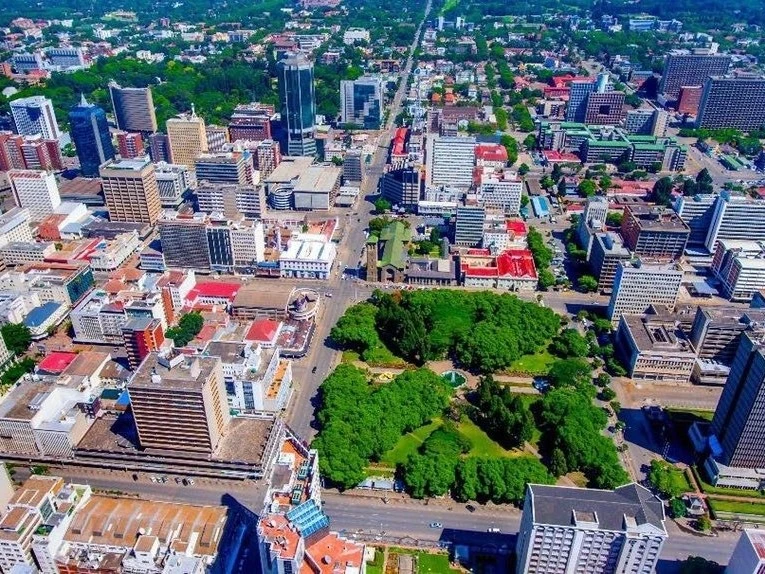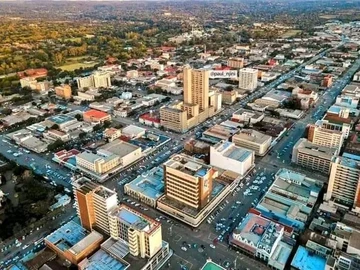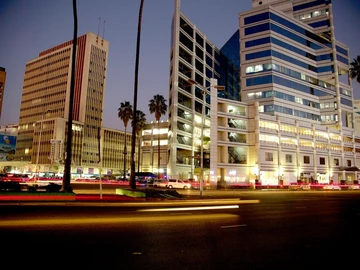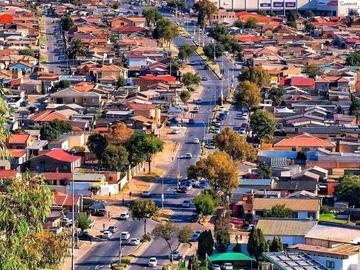Harare, the capital city of Zimbabwe, is a vibrant and dynamic metropolis that offers a unique blend of modern living and rich cultural heritage. Whether you're planning to move to Harare or are already a resident, this guide will help you navigate the city's various aspects, from housing and education to entertainment and dining.
1. Housing and Neighbourhoods
Harare is home to a diverse range of neighbourhoods, each with its own character and amenities. From the upscale suburbs of Borrowdale and Glen Lorne to the bustling areas of Highfield and Mbare, there's something for everyone.
When choosing a neighbourhood, consider factors such as proximity to work, schools, and recreational facilities. The property market in Harare is competitive, with options ranging from luxurious homes to more affordable apartments. Platforms like Property.co.zw make it easy to explore available properties and find the perfect home.
Average Prices
In prime urban areas like Harare, particularly in neighbourhoods such as Borrowdale and Mount Pleasant, monthly rent for a standard three-bedroom house can range from USD 800 to USD 1,500 or more.
Meanwhile, in more affordable suburbs or smaller towns, such as Highfield or Kadoma, rent for similar properties typically ranges between USD 300 and USD 600 per month. Apartments and smaller homes generally cost less, with one-bedroom units in major cities averaging between USD 200 to USD 500 per month.
2. Education
Harare boasts a wide array of educational institutions, from reputable primary and secondary schools to esteemed universities and colleges. The city is home to top schools like St. George's College, Harare International School, and Arundel School, which offer quality education and various extracurricular activities.
For higher education, the University of Zimbabwe and Harare Institute of Technology are prominent institutions providing diverse academic programs.
3. Healthcare
Access to healthcare in Harare is relatively good, with several public and private hospitals and clinics available. Parirenyatwa Hospital and Harare Central Hospital are the largest public hospitals, offering a range of services.
For those who prefer private healthcare, options like Avenues Clinic and West End Hospital provide high-quality care. It's advisable to have health insurance to cover medical expenses, especially if you plan to use private facilities.
4. Transportation
Getting around Harare is straightforward, with various transportation options available. Public transport mainly consists of commuter omnibuses (kombis), which are the most common mode of transport. Taxis and ride-hailing services like InDrive, Taxi Rider and Vaya are also widely available.
For those who prefer driving, owning a car is convenient, especially if you live in suburban areas. Traffic can be heavy during peak hours, so it's essential to plan your commute accordingly.
5. Shopping and Dining
Harare offers a vibrant shopping and dining scene, with everything from local markets to modern shopping malls. Sam Levy's Village in Borrowdale and Westgate Shopping Mall are popular destinations for shopping, dining, and entertainment.
The city also has a thriving food scene, with a variety of restaurants serving both local and international cuisine. Whether you're in the mood for traditional Zimbabwean dishes or fine dining, Harare has something to satisfy every palate.
6. Recreation and Entertainment
Harare is rich in recreational and entertainment options. The city is home to beautiful parks like the Harare Gardens and the Mukuvisi Woodlands, where you can enjoy outdoor activities like picnicking, bird watching, and hiking. For art and culture enthusiasts, the National Gallery of Zimbabwe and Reps Theatre offer exhibitions and performances throughout the year.
The city also hosts various events and festivals, including the Harare International Festival of the Arts (HIFA), which showcases music, theatre, and visual arts from local and international artists.
7. Safety and Security
Like any major city, safety is an important consideration when living in Harare. While the city is generally safe, it's advisable to take precautions, especially in unfamiliar areas. Stick to well-lit streets, avoid displaying valuables in public, and be aware of your surroundings. Gated communities and homes with security features are popular choices for those seeking added peace of mind.
Harare is a city full of opportunities, offering a vibrant lifestyle that combines the best of urban living with a strong sense of community. Whether you're drawn to its cultural diversity, modern amenities, or the warmth of its people, Harare is a place where you can truly feel at home. Use this guide to explore the city's many facets and make the most of your experience living in Zimbabwe's capital.
 Continue with Facebook
Continue with Facebook
 Continue with Email
Continue with Email














